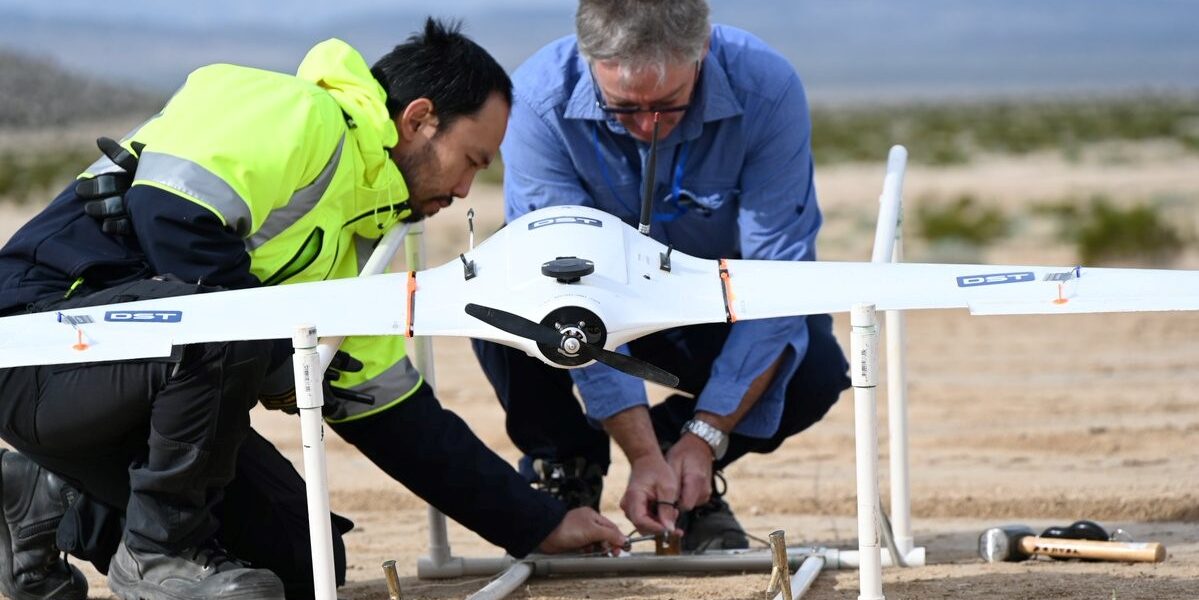
Autonomous AI drones capable of independently locating and destroying ground targets have been successfully tested in a “ground breaking” multinational military exercise.
The exercise is the first use of autonomy and AI sensing systems in a real-time military environment according to UK’s Defence Science and Technology Laboratory (DSTL).
Multiple AI-powered drones from Australia, the UK and the US, known as the AUKUS partnership, operated in tandem while rapidly sharing data and intelligence, such as troop movements or potential target locations.
A specialised AI computer program was used to control the systems, minimising the time between identifying the targets, deciding how to respond, and responding to the threat.
One of the AI systems was integrated with the UK’s RedKite UAV, enabling the drone to quickly find possible enemy positions by using maps and live data. Another drone took high-resolution pictures to confirm the targets. All the information was sent to an operations centre where a human “AI officer” reviewed it, before giving the order to a third drone, the Australian XT-8 UAV, to simulate an attack.
Collaboration between the different AUKUS partners significantly reduces the time needed to identify and respond to threats across multiple domains such as land, maritime, air, and cyber, according to Commodore Rachel Singleton, head of the UK’s Defence Artificial Intelligence Centre.

Singleton emphasised the importance of the partnership: “The AUKUS partnership is key to ensuring that the systems designed by each nation are interoperable into the future. Service personnel from one nation will be supported by capabilities that have been developed across all 3 nations.”
The trial is part of the AUKUS Resilient and Autonomous Artificial Intelligence Technologies (RAAIT) program, which aims to develop and deploy AI and autonomy technologies safely and responsibly.
AI and autonomous technology is rapidly advancing and DSTL expects that it “will be incorporated onto national platforms, providing the military with operational advantage through a quicker response to current and future threats.”
A video shared by the Office of the Secretary of Defense Public Affairs gave details of the trials, discussing how the three nations integrated their AI capabilities.
Dr Kimberly Sablon, Principal Director of Trusted AI and Autonomy for the U.S. Department of Defense, said “We’re creating an ecosystem that allows us to federate AI capabilities across the coalition. One advantage of doing that is that we’re expanding and sustaining our capabilities. We’re stronger as a coalition.
“It used to be that each nation used its own datasets to develop separate models and deploy those models on their own platforms.
“Under RAAIT, we’ve matured the AI pipeline, focusing on interchangeability and interoperability, which allows for any combinations of datasets, models, algorithms and platforms to be used across all three nations.”

The trial was conducted as part of the annual US-hosted Project Convergence exercise, which brought together over 500 British Army personnel and industry partners from the UK, Australia, and the U.S.
Sablon said that the project has accelerated the development of AI and autonomous technologies “closer to the hand of war fighters”.
Beyond drone technology, AUKUS is also exploring ways to protect critical military assets, such as armoured vehicles, from electronic warfare, laser, and GPS attacks. This collaborative effort intends to enhance interoperability and access to cutting-edge AI across all three nations.

































































































































































































































































































